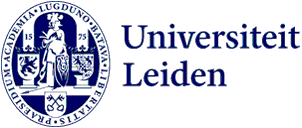
1.5 million awarded for research into misinformation among youth
Developmental psychologist Ili Ma has been awarded an ERC grant to investigate misinformation among teenagers, aiming to bolster their resilience against its potentially severe consequences.

What does this grant enable you to do?
‘The ERC grant allows me to establish a comprehensive research programme investigating youth susceptibility to misinformation and disinformation, with the aim of enhancing their resilience. This is a critical and timely issue, as false information fuels significant societal problems such as polarisation. Despite growing up in an increasingly digital world in which misinformation is abundant, teenagers have been largely overlooked in existing research. This grant also facilitates close collaboration with youth, parents, and professionals such as digital neighborhood officers and counterterrorism experts. Their insights are essential to ensuring that the research is both relevant and directly applicable to society.’
Why did you choose to study susceptibility to misinformation among youth?
‘Misinformation affects not only adults but also teenagers and young adults, who express a clear need for better tools to identify and navigate false information. There are already several youth-driven initiatives addressing this issue, and I believe it is a key role of scientific research to support and amplify these efforts. Furthermore, teenagers are at a pivotal stage in their development, where exposure to misinformation can have lasting negative impacts. It is therefore essential to equip them with the critical skills needed to engage thoughtfully and responsibly with the information they encounter.’
'Young people express a desire for more tools to better recognise misinformation'
Can you explain the method you'll be using?
‘My research will employ a range of methods, with a primary focus on understanding the factors that make misinformation and disinformation particularly convincing to youth, as well as how susceptibility varies with age. By integrating experimental and qualitative approaches, I aim to pinpoint the specific fallacies to which teenagers are most vulnerable. These insights will ultimately inform strategies to help teenagers and young adults more effectively recognise when they are being misled.’
Can you give an example of a situation where youth are influenced by online misinformation?
‘Studies from the U.S. indicate that conspiracy theories are gaining acceptance, particularly among teenagers who are highly active on social media. A concerning trend is also emerging in health-related topics, where more young adults are considering risky cosmetic procedures like tummy tucks or Botox, often traveling abroad for cheaper options. This rise in interest might be fueled by influencers promoting cosmetic tourism and sharing their positive experiences, which creates a false sense of safety around these procedures. In reality, such surgeries can carry significant risks and long-term consequences.’
‘US research shows teens who spend a lot of time on social media are more susceptible to conspiracy theories’
What has research already shown to be effective in making youth more resilient against misinformation, and how do you plan to contribute further?
‘Research has shown that interactive interventions, such as games or simulations, are effective in illustrating how misinformation can be persuasive. However, most of these programs are based on studies with adults. To build true resilience in youth, we need a deeper understanding of the specific factors that make them vulnerable to misinformation and how this susceptibility changes with age. My research aims to map these factors, focusing directly on the experiences and developmental stages of young people. By tailoring interventions to their needs, we can foster critical thinking skills that have a lasting impact.’
‘To really empower young people, we need to identify the factors that make them susceptible to misinformation’
What has research already shown to be effective in making youth more resilient against misinformation, and how do you plan to contribute further?
‘Unfortunately, there is no straightforward solution, as commercial tech companies typically prioritise profit. The longer users stay on their platforms, the more revenue they generate, which creates a conflict between ethical responsibility and business interests. While tech companies have a duty to design their platforms ethically and reduce the spread of misinformation, their commitment and approach to this varies significantly. Governments, might therefore also play a role in developing policy and regulation. Though the issue is complex, we shouldn't underestimate young people. They are often highly perceptive, and with the right tools and support, they can learn to critically navigate both misinformation and the addictive features of these platforms.’
